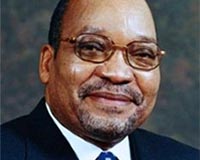| . |  |
. |
Chengdu, China (AFP) May 11, 2009 China on Monday confirmed the first case of swine flu on the Chinese mainland, as the World Health Organisation defended its decision to raise the global alert about the disease. "If countries had not been thinking about what to do in this kind of situation, the fact is we would have had much more confusion," said acting WHO Assistant Director-General Keiji Fukuda. "In many ways, the severity would have been greater." The WHO raised its pandemic alert to five on a scale of six two weeks ago, signalling that a pandemic was "imminent" after Mexico and the United States showed sustained local transmission of the influenza A(H1N1) virus. The alert prompted countries to take specific measures, including looking at distribution of anti-viral drugs or issuing travel advice at airports. The world death toll passed 50 at the weekend after Costa Rica reported its first fatality from the flu -- believed to be a mix of bird and human flu which came together in pigs -- and the United States confirmed a third death. But all eyes will be on China, after the Chinese authorities confirmed that a 30-year-old man was hospitalised with the disease after arriving in Sichuan provincial capital Chengdu, in southwestern China on a flight from the United States. "This is our country's first case of A(H1N1)," Chinese health ministry spokesman Mao Qunan said. China had previously confirmed a case, a Mexican national, in the semi-autonomous southern city of Hong Kong. State television said the man, surnamed Bao and in a stable condition, flew from Tokyo to Beijing on a Northwest Airlines flight before connecting on a domestic flight to Chengdu. China, home to a billion people, is among the Asian nations hit since 2003 by the H5N1 strain of bird flu which has killed more than 250 people in a dozen countries, according to the WHO. Some 25 people have died from bird flu in China. The swine flu virus was first reported in Mexico in April, but has spread to more than 30 nations since and the global number of infected cases is heading towards 5,000. US health officials Monday reported that the 2,600 confirmed cases across the United States represented just the tip of the iceberg of actual infections. "Many states did not report over the weekend, so we expect a big jump in the number of cases tomorrow," said Anne Schuchat, the interim deputy director at the Centers for Disease Control and Prevention (CDC). Most of the 4,694 cases confirmed by the WHO have involved relatively mild symptoms and the virus has proved to be treatable with anti-viral drugs such as Tamiflu so far, prompting questions about whether the WHO had acted too rashly. At least 53 people have died, according to the latest data from the UN health agency. The WHO's Fukuda said: "It's often hard to see what you would have prevented by doing so much work... if things turn out that few people die, it would be the best of all possible outcomes." Mexico, which was the epicenter of the outbreak and where 56 people have died, is struggling to get back to normal, and six schools remained shut Monday amid fears of a further flu outbreak. Mexican authorities also announced a one-billion-dollar business support programme to help counter the impact of swine flu. The 1.06 billion dollar program aimed to promote "a faster recovery by businesses affected" by the A(H1N1) flu, particularly tourism, the finance ministry said in a statement. Mexican Health Minister Jose Angel Cordova said its infection toll stood at 2,059, with the 56 deaths "equivalent to 2.7 percent of all cases." Three foreigners -- a Scot and two US citizens -- were among the latest infected. Meanwhile, in Japan nearly 50 people remain in isolation after they flew in on Friday from Detroit on the same plane as a teacher and three students who have tested positive for A(H1N1). In a hotel, located in a quiet farming community outside Tokyo, they are not allowed to leave their rooms except for meals, which they must take alone at tables spaced at least three metres (10 feet) apart. Share This Article With Planet Earth
Related Links Epidemics on Earth - Bird Flu, HIV/AIDS, Ebola
 Fresh questions on AIDS fight with new SAfrica minister
Fresh questions on AIDS fight with new SAfrica ministerJohannesburg (AFP) May 11, 2009 New South African President Jacob Zuma tapped an obscure provincial politician to guide the nation through the world's worst HIV crisis, raising questions about the strength of the health ministry. Aaron Motsoaledi, a medical doctor currently serving as a provinicial education official, will take office as the new health minister Monday -- the second change in the post in less than a year. ... read more |
|
| The content herein, unless otherwise known to be public domain, are Copyright 1995-2009 - SpaceDaily. AFP and UPI Wire Stories are copyright Agence France-Presse and United Press International. ESA Portal Reports are copyright European Space Agency. All NASA sourced material is public domain. Additional copyrights may apply in whole or part to other bona fide parties. Advertising does not imply endorsement,agreement or approval of any opinions, statements or information provided by SpaceDaily on any Web page published or hosted by SpaceDaily. Privacy Statement |